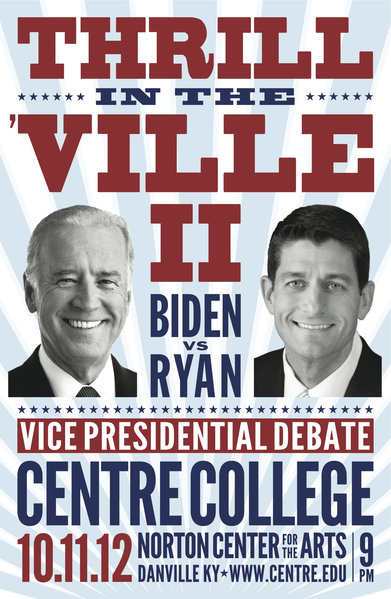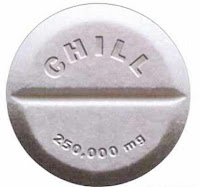Ezra Klein on Obama's victory speech:
The Obama campaign found that their key voters were turned off by soaring rhetoric and big plans. They’d lowered their expectations, and they responded better when Obama appeared to have lowered his expectations, too. And so he did. The candidate of hope and change became the candidate of modest plans and achievable goals. Rather than stopping the rise of the oceans — which sounded rather more fantastical before Sandy — Obama promised to train more teachers and boost manufacturing jobs.
What you saw tonight, however, was that Obama didn’t much like being that guy. He still wants to be the guy he was in 2008. He still wants to inspire and to unite. He still wants Americans to feel that the arc of history is bending under their pressure. He still wants to talk about climate change and election reform and other problems that the Senate is not especially eager to solve.
This has been the tension at the center of the Obama White House for four years now. Hope and change don’t go together. The legislative process doesn’t leave people feeling very hopeful. But it’s the only mechanism the president really has to make change.
Tonight, however, President Obama wasn’t trying to get 60 votes in the Senate or to swing a few undecideds in Ohio. Tonight, he had finished the long grind of his last campaign, but he hadn’t begun the hard work of his second term. Tonight, he could be the candidate of both hope and change, if only for a little while.
Must-see-tv:
Romney thought he was going to win. His campaign spent $25,000 dollars on victory fireworks, and even briefly posted (on accident) this 'transition site.'
Paul Glastris, "The Mystery of Why Republicans Were So Sure They'd Win" (Washington Monthly)
Conor Friedersdorf, "How Conservative Media Lost to the MSM and Failed the Rank and File"- why they didn't see this coming
Peter Beinart, "Obama Victory Signals New Democratic Dominance in U.S. Politics" (The Daily Beast)
Four years ago, it looked possible that Barack Obama’s election heralded a new era of Democratic dominance. Now it looks almost certain. In the early 20th century, the face of America changed, and only one party changed with it. In the early 21st century, that story has played itself out again. From the beginning, Obama has said he wants to be a transformational figure, a president who reshapes American politics for decades, another Reagan or FDR. He may just have achieved that Tuesday night.
Beth Reinhard, "GOP Challenge: How to Transcend Aging White Base" (National Journal)
Romney’s loss touched off a round of hand-wringing within the Republican Party—particularly about its demographics. But there is no consensus on the way forward.
Andrew Cohen, "Why Mitt Romney Lost: A Simple Overriding Theory" (The Atlantic)
No serious political party in America -- no legitimate party in any viable democracy -- can win an election by suppressing votes. So long as the Republican Party endorses (and enacts) voting laws designed to make it harder for registered voters to vote, so long as Republican officials like Ohio's Jon Husted contort themselves to interpret those laws in a restrictive fashion, the Republicans will continue to play a loser's game.
Ari Berman, "How the GOP's War on Voting Backfired" (The Nation)
The Empire Strikes Back?: Supremes to take on the Voting Rights Act. Obama managed to put together a diverse coalition despite Republican attempts at voter suppression. Part of the reason those efforts failed was because the courts struck down or overruled rules designed to make it more difficult to vote. Many of those rulings were based on the Voting Rights Act.
What about your gaffes?:
An inside view of the Romney campaign's voter turn out operation.
An inside view of Obama's.
All you need is love: a nice DKos tribute to hugs on the campaign trail.
A 'conservative' reaction to Obama's reelection (don't watch if you're eating):
Brett Norman and Jason Millman report on what the election means for health care politics.
The next couple months will be dominated by talks over how we settle our finances. Fortunately Obama now has a strong hand to play:
Jonathan Cohn, "How the Election Reset the 'Fiscal Cliff' Debate" (The New Republic)
Jonathan Cohn, "Obama Shows His Upper Hand in 'Fiscal Cliff' Negotiations" (The New Republic)
Jonathan Chait, "Obama to Boehner: Put Down the Gun" (New York Magazine)
Paul Krugman, "Let's Not Make a Deal" (NYT):
Republicans are trying, for the third time since he took office, to use economic blackmail to achieve a goal they lack the votes to achieve through the normal legislative process. In particular, they want to extend the Bush tax cuts for the wealthy, even though the nation can’t afford to make those tax cuts permanent and the public believes that taxes on the rich should go up — and they’re threatening to block any deal on anything else unless they get their way. So they are, in effect, threatening to tank the economy unless their demands are met.
Mr. Obama essentially surrendered in the face of similar tactics at the end of 2010, extending low taxes on the rich for two more years. He made significant concessions again in 2011, when Republicans threatened to create financial chaos by refusing to raise the debt ceiling. And the current potential crisis is the legacy of those past concessions.
Well, this has to stop — unless we want hostage-taking, the threat of making the nation ungovernable, to become a standard part of our political process.
So what should he do? Just say no, and go over the cliff if necessary.
It’s worth pointing out that the fiscal cliff isn’t really a cliff. It’s not like the debt-ceiling confrontation, where terrible things might well have happened right away if the deadline had been missed. This time, nothing very bad will happen to the economy if agreement isn’t reached until a few weeks or even a few months into 2013. So there’s time to bargain.
More important, however, is the point that a stalemate would hurt Republican backers, corporate donors in particular, every bit as much as it hurt the rest of the country. As the risk of severe economic damage grew, Republicans would face intense pressure to cut a deal after all.
Meanwhile, the president is in a far stronger position than in previous confrontations. I don’t place much stock in talk of “mandates,” but Mr. Obama did win re-election with a populist campaign, so he can plausibly claim that Republicans are defying the will of the American people. And he just won his big election and is, therefore, far better placed than before to weather any political blowback from economic troubles — especially when it would be so obvious that these troubles were being deliberately inflicted by the G.O.P. in a last-ditch attempt to defend the privileges of the 1 percent.
Most of all, standing up to hostage-taking is the right thing to do for the health of America’s political system.
The two sides of Obama:
Finally, I put together a youtube playlist based on this interview with the guy who DJ'd the reelection rally. DJ Mel sets the scene:
the Obama camp gave me a list of about thirty or forty songs — I can’t remember exactly how many. They were like, “These are the pre-approved songs. Playing these would be good.” There was a schedule and you can imagine that the timeline for the event was run like the military. So those pre-approved songs ended up being kind of low background music for the most part.
When the room started to get full and they were kind of starting to show the results and they were announcing which states each candidate won, you could tell that people had a very positive attitude. I didn’t want to say, “OK, he’s gonna win,” but after a while he just gained all this momentum and started winning all these states and the crowd started getting crazier and crazier.
I’d be playing a song and then the producer would tell the sound guy to tell me to fade out to CNN which was playing on the screen. Yeah it was kind of weird, it was like that up until around 1 a.m. when they finally announced that Obama had one and the whole room went crazy.
The thing is that by that time I had already gone through the list of pre-approved songs. They had already come to me and been like, “If you run out of songs just go ahead and play things that you think are more or less fitting. Be mindful about what you play.” I mean, obviously, you can’t just play anything there. You think like that when you’re DJing at a club — you just play what you want and it’s gonna be fine if it’s fun. And this was fun, but you’re also thinking that you could play the wrong song and it will reflect on the president. Right behind me was the press, they could see everything I was doing. I was kind of afraid that if I messed up, they would be like, “Why the hell is he playing this song?” and then immediately take to the Internet and be like, “You won’t believe what Obama is playing at his party.”
I didn’t prepare for it at all! The only thing that I was prepared with were those pre-approved songs. It didn’t hit me until I walked into that empty venue and the press was already there and there were tv cameras everywhere. I just looked around stunned. That’s when it hit me.
When I ran out of the [pre-approved] songs was right around the time they announced that Obama had won. It just happened so quickly and I was so happy — I was jumping up and down and the whole room was going apeshit. I couldn’t even think. Even though I was there working I was so worried that the dude was going to get robbed or that we were going to have to wait for a week for a recount or something. So while I was jumping up and down, I just spur-of-the-moment grabbed and decided to play “Twist And Shout.” The room went bananas and the sound guys were looking at me, telling me that the producers were giving me a thumbs-up. I was honestly just standing there so happy, thinking about how crazy everything was around me. And then it dawned at me that we were in Chicago and Ferris Bueller took place in Chicago — that song “Twist And Shout” played such a big part in that movie. I remember that the crowd in that movie was just as diverse and it was just this scene of joy. It reflected what was going on in that venue on that night, too. That’s when I decided I should just wing it for the rest of the night. I was like, I should just do what I do and really think about what I’m playing. I immediately thought of really uplifting, soulful music. Songs that people knew or didn’t know — the cool thing about it was that they were all songs that I really, really love.
Here's some of what he played:
Well folks, I'll probably take a break from blogging for a while, but this has been quite an election, and I really enjoyed posting about it... thanks for reading!
















